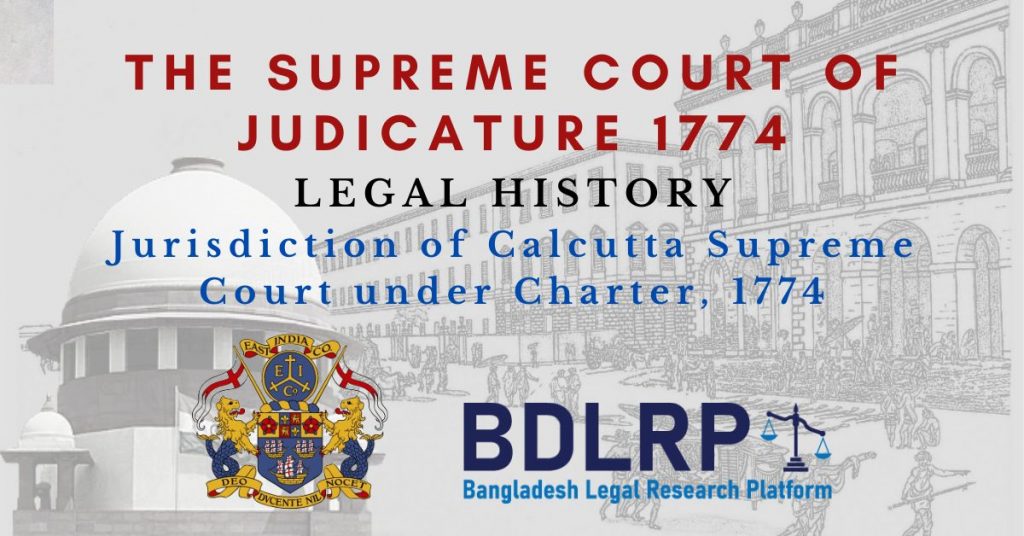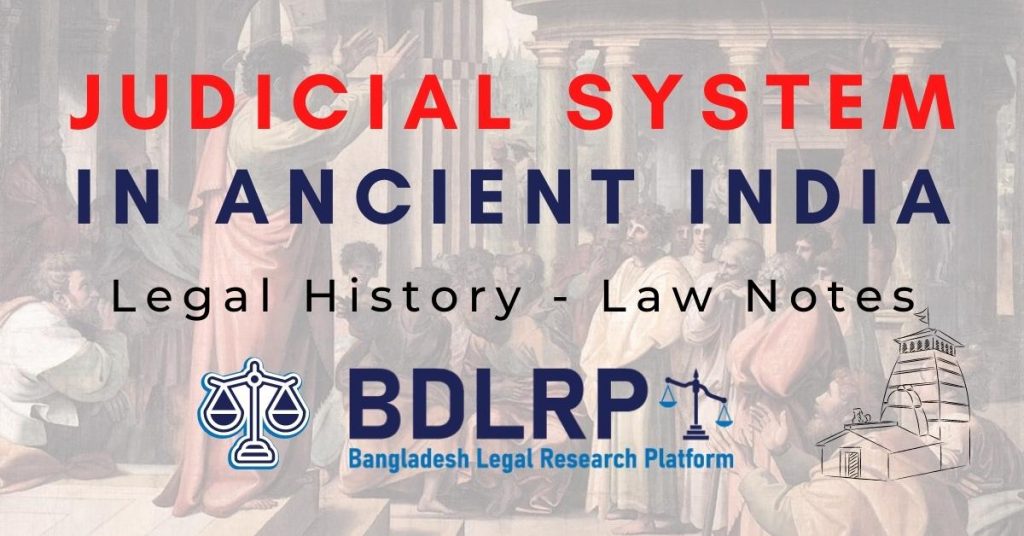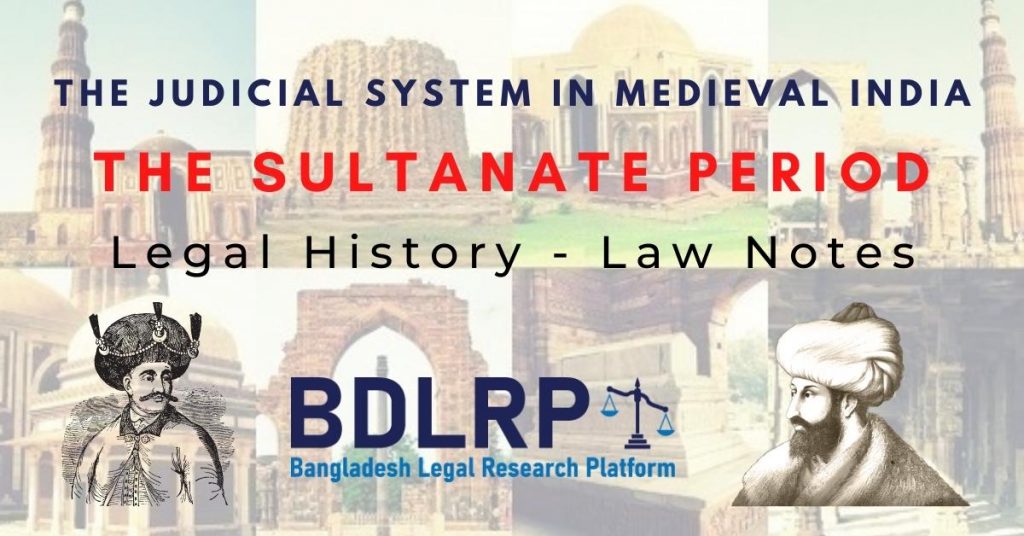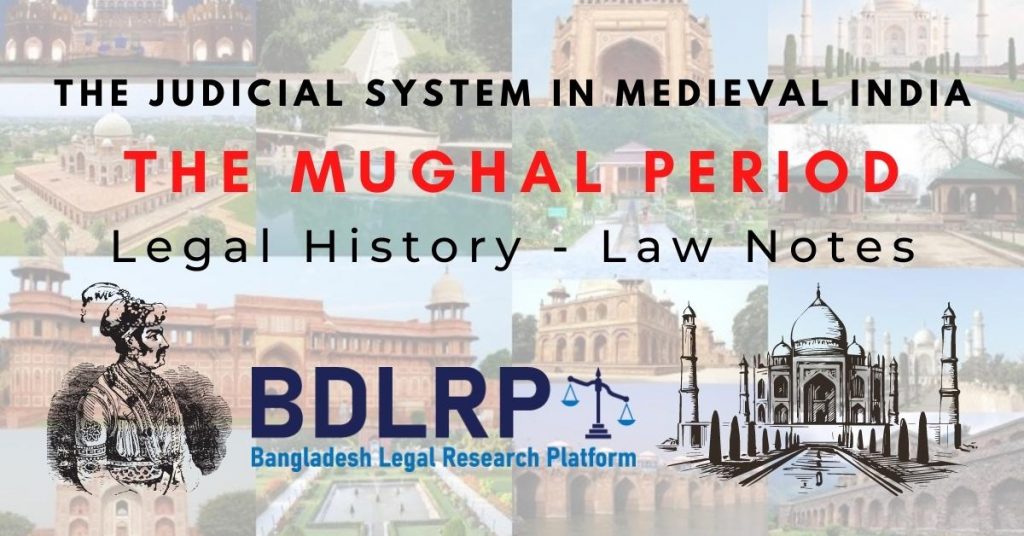Under section 13 of the regulating act 1773 George III issued a charter on 26 March, in 1774 which established the supreme court in Calcutta.
(A) The supreme court would consist of chief justice and three puisne judges. Sir Eliza impey was first chief justice and Stephen c.le. Maistre, Robert chambers, Stephen John Hyde were first puisne judges. All judges appointed by the crown. They were to hold office during the pleasure of the crown. The supreme Court was also a crown’s Court.
(B) Each of these judges was to be a professional lawyer, as a barrister of at least 5 years standing.
(C) Each of these judges of the supreme Court was to be a justice of peace and the judges of the supreme court were to have the same jurisdiction. Authority as the justices of the code of Kings bench in England under the common law.
(D) the supreme Court was authorized to try and hear all civil cases arising against the mayor and aldermen of Calcutta, any of his majesty’s subjects residing the provinces of Bengal, Bihar and Orissa, all person employed directly or indirectly in the service of the company and any inhabitant of Bengal Bihar and Orissa.
(E) The supreme Court was authorized to try and to hear all criminal cases over all the British subjects in Bengal, Bihar and Orissa and over all person’s employee directly indirectly to service of the company.
(F) While exercising its criminal jurisdiction, the supreme Court was to be a court of Moyer and terminer and goal delivery in and for the town of Calcutta, the factory of fort William and the factories subordinate thereto. In this capacity it was to have the same power and authority as the juristices of Moyer and terminer and goal delivery exercised in England. The court was to use Grand jury and petty, composed of the subjects of Great Britain resident in the town of Calcutta in criminal cases.
(G) The supreme Court was to be a court of equity and was to have full power and authority to administer justice as nearly as mab be according to the rules and proceeding the high court of chancery in Britain.
(H) The supreme Court was empowered to try ecclesiastical jurisdiction overall British subjects in Bengal, Bihar and Orissa. Such the court grant probates of wills and testament’s of British subjects dying within 3 provinces of Bengal, Bihar and Orissa. it could be issue letters of administration for effects of the British subject dying intestate or dying without appointing and executor of his will. the supreme Court was empowered to appoint guardians and keepers for infants and their estates and also guardians and keepers of insane persons according to the rules prevalent in England.
(I) The supreme Court was also empowered to try to hear admin admiralty jurisdiction for the provinces of Bengal, Bihar and Orissa in the same away as the admiralty Court used to do in England. the court was to have power to try with the help of a petty jury consisting of British subjects’ resident in the town of Calcutta, all crimes maritine committed on high seas, into the laws and customs of the admiralty in England.
(J) the supreme Court was further empowered to superintend code of requests, the justice of peace and the court of the quarter sessions and was empowered to issue various prerogative writs like the mandamus, certiorari, procedendo and error.
(K) In civil cases exceeded 500 pagodas, supreme Court was authorized to hear in the first instance. it could also hear appeal from the decision at a mafussil court, companies Court, the valuation of a suit exceeded 1000 pagodas, appeal would lie to the king in council within 6 months from the decision of the supreme court.
(L) In criminal cases, the supreme Court was to have full power and absolute discretion to allow or deny the permission to make an appeal to the king in council from its decision.
(M) In criminal cases, if the supreme thought that there was a proper occasion for Mercy than it would suspend the execution of the death sentence, transmit the reasons for recommending the criminal to Mercy and await the pleasure of the king.
(N) The supreme Court was empowered to admits advocates and attorneys, only persons were to appear and plead before the court. On reasonable cause, the court was authorized to remove any of them from the rolls.

Author: Riadur Jaman Riad
Department of Law,
University of Rajshahi.





Comments are closed.